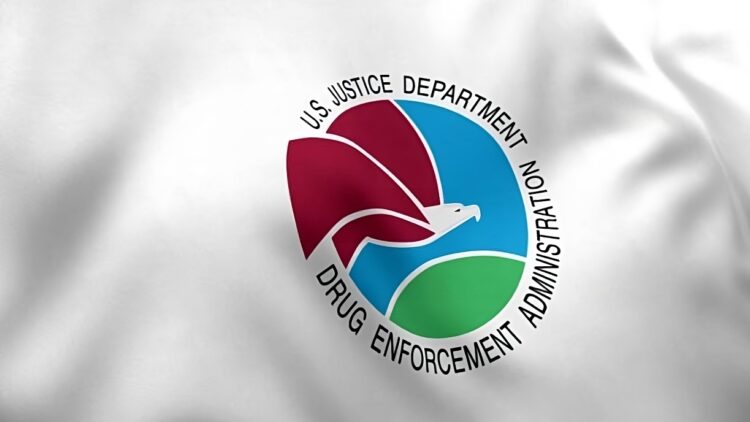At the 2023 Supply Chain Conference in Houston, Texas, the Drug Enforcement Administration (DEA) revealed its plans to introduce fresh guidelines pertaining to synthetic cannabinoids.
Terrance Boos, head of the DEA’s Drug and Chemical Evaluation Section, addressed emerging trends on May 4 at the conference. He verified that the DEA is actively reviewing “numerous petitions” related to synthetic cannabinoids, and is revising its regulations in accordance with recommendations from the U.S. Department of Health and Human Services (HHS).
In his PowerPoint presentation, Boos delved into a broad array of subjects, including changes to drug classifications, fake pill operations, and online drug trafficking. He dedicated a segment to the “decade of dealing with harm,” discussing the development of designer drugs such as spice/bath salts, synthetic opioids, designer benzodiazepines, and synthetic cannabinoids from “CBD to delta-8 THC.”
Boos hinted at potential plans to deschedule synthetic CBD, stating that the “proposed regulation treats synthetic CBD with less than 0.1% delta-9-THC the same as AIA [agriculture improvement act] exempted substances.”
Boos also provided a brief overview of delta-8 THC, its origin, manufacturing process, states that have regulated or banned it, along with data highlighting the surge of delta-8 products in 2021 and 2022. He noted that delta-8 THC is naturally found in small amounts in cannabis, with the majority being chemically transformed from CBD into delta-8 THC, thus bringing it under the controlled substances act.
The unrevealed new regulations could potentially alter the categorization of hemp-derived cannabinoids, Boos acknowledged.
Vicente LLP, in a short analysis, indicated that these rules might be coming shortly. They urged businesses to stay alert to the ongoing federal agency activities related to marijuana and hemp that could affect the legality of cannabis products. Vicente LLP also suggested that key legislation such as the 2023 Farm Bill could alter the legal status of certain cannabis products.
Earlier in February, the DEA declared that delta-9-THCO and delta-8-THCO are classified as controlled substances, not hemp. Boos wrote, “Delta-9-THCO and delta-8-THCO are synthetically produced, and thus, do not meet the definition of hemp.”
Previously in October, the Food and Drug Administration (FDA) hosted a webinar discussing their approach to cannabis. Janet Woodcock, FDA principal deputy commissioner, confirmed that while they use data from the National Institute on Drug Abuse (NIDA) for cannabis assessment, the DEA holds the final decision on substance scheduling. This limitation, Woodcock said, makes cannabis research challenging under the current guidelines.









